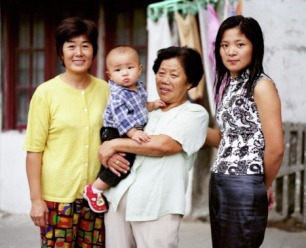Introduction

"Among all ethnicities, Asian Americans and Pacific Islanders are the least likely to seek help for mental disorders. Asian cultural values of self-reliance and reservation and fear of shaming the family keep many from seeking assistance with emotional problems." - APA Healthy Minds
The Asian / Asian American community is comprised of a very diverse group of ethnic, cultural, and historical experiences. Some Asians / Asian Americans have lived in the United States for many generations. Others are more recent immigrants. Consequently, there is great variation in language aptitude and degree of assimilation and acculturation within this group.
Asian Americans are often considered a "model minority" in the U.S; even though they represent only a minority of the population, they are expected to achieve a higher-than-average degree of success. However, many Asian Americans and Pacific Islanders have difficulty accessing mental health services for a variety of reasons including economic barriers, social and cultural differences, language disparities, and the lack of culturally competent providers.
Studies have shown that Asian Americans and Pacific Islanders face many of the same mental health problems as other racial / cultural groups in the U.S. Among some groups of Asian Americans / Pacific Islanders, researchers have found high rates of depression, social anxiety, social phobia, and trauma-related disorders, as well as problems including addiction, gambling, and family violence, compared to the general population.
Some research has found:
It has been observed that Asian Americans who use mental health services are more severely ill than other groups. It is hypothesized that the delay in seeking treatment may be related to the stigma associated with using mental health services among the Asian population, as well as the cultural-linguistic barriers to accessing mental health care.
For additional information, please visit the following web site:
http://www.healthyminds.org/More-Info-For/Asian-AmericanPacific-Islanders.aspx
The Asian / Asian American community is comprised of a very diverse group of ethnic, cultural, and historical experiences. Some Asians / Asian Americans have lived in the United States for many generations. Others are more recent immigrants. Consequently, there is great variation in language aptitude and degree of assimilation and acculturation within this group.
Asian Americans are often considered a "model minority" in the U.S; even though they represent only a minority of the population, they are expected to achieve a higher-than-average degree of success. However, many Asian Americans and Pacific Islanders have difficulty accessing mental health services for a variety of reasons including economic barriers, social and cultural differences, language disparities, and the lack of culturally competent providers.
Studies have shown that Asian Americans and Pacific Islanders face many of the same mental health problems as other racial / cultural groups in the U.S. Among some groups of Asian Americans / Pacific Islanders, researchers have found high rates of depression, social anxiety, social phobia, and trauma-related disorders, as well as problems including addiction, gambling, and family violence, compared to the general population.
Some research has found:
- Based on prevalence of symptoms, Asian Americans appear to have an increased risk of depression.
- Chinese Americans report the highest lifetime prevalence rate of depression.
- Symptoms of social anxiety, social phobias, and trauma-related disorders occur at high rates among Asian Americans, especially among second-generation Asian Americans. This finding may be attributed in part to conflicts between their strong identification with mainstream (U.S.) culture and the more traditional family values of their parents and elders.
It has been observed that Asian Americans who use mental health services are more severely ill than other groups. It is hypothesized that the delay in seeking treatment may be related to the stigma associated with using mental health services among the Asian population, as well as the cultural-linguistic barriers to accessing mental health care.
For additional information, please visit the following web site:
http://www.healthyminds.org/More-Info-For/Asian-AmericanPacific-Islanders.aspx